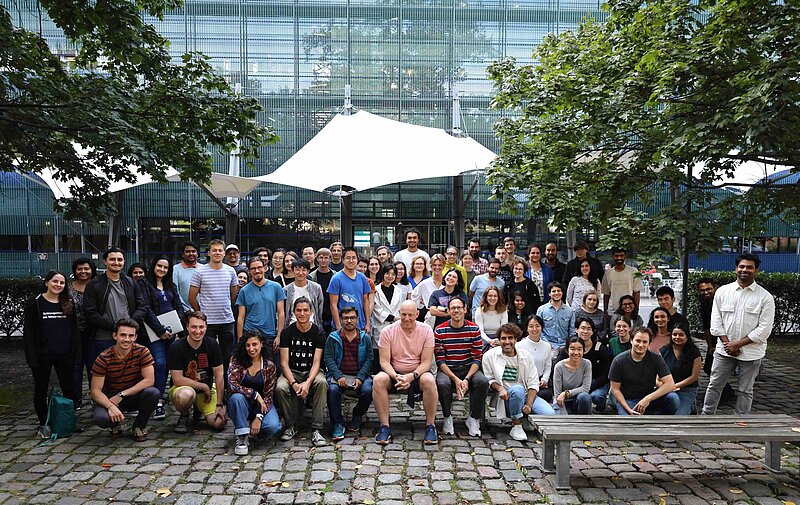From September 23rd to 27th, the Max Planck Institute of Molecular Cell Biology and Genetics (MPI-CBG) and Cluster of Excellence Physics of Life (PoL) at the TU Dresden welcomed researchers to the Dresden Summer School on Physical Biology of the Cell. This event, hosted in the MPI-CBG, brought together 108 participants from across the Dresden scientific community. It marks the second iteration of the course, previously being held in October 2022. Organized jointly by the International Max Planck Research School for Cell, Developmental, and Systems Biology and TU Dresden, the focus was on leveraging the use of quantitative thinking to query the nature of the living.
Quantitative methods are necessary to fortify the life sciences. With the rise of computational data analysis, modeling and simulation, this is more accessible than ever. To broach this topic, the course was led by two leading biophysicists: Rob Phillips, the Fred and Nancy Morris Professor of Biophysics, Biology, and Physics at the California Institute of Technology, and Jané Kondev, the William R. Kenan Jr. Professor of Physics at Brandeis University. The summer school aimed to teach scientists how to use quantitative frameworks and computational tools to make predictive statements about cellular behavior. Participants introduced to this new wave of thinking ranged from PhD students to research group leaders. Through lectures and hands-on training, participants explored real-world case studies that highlight fundamental physical principles at work within biological systems.
A key feature of the course was its emphasis on demystifying the mathematics and models that often seem daunting. Instead of field-specific jargon, Phillips and Kondev together with teaching assistants Ana Duarte and Kian Faizi focused on intuitive, conceptual teaching that allows researchers from diverse backgrounds to grasp and apply these concepts to their work. Known for his innovative and philosophical teaching style, Rob Phillips broke down complex topics into manageable pieces that left the audience with key takeaways, not just on how to approach quantitative biology but why it is crucial to their research. Phillips has earned an international reputation as a teacher and has traveled extensively to give the course in various institutes. These lectures were complemented by interactive sessions where participants developed models and simulations, gaining practical experience with tools that are becoming indispensable to modern biological research.
Thank you to Rob, Jané, and teaching assistants Ana Duarte and Kian Faizi for their enthusiasm and also thanks to all participants for their curiosity and engagement!
